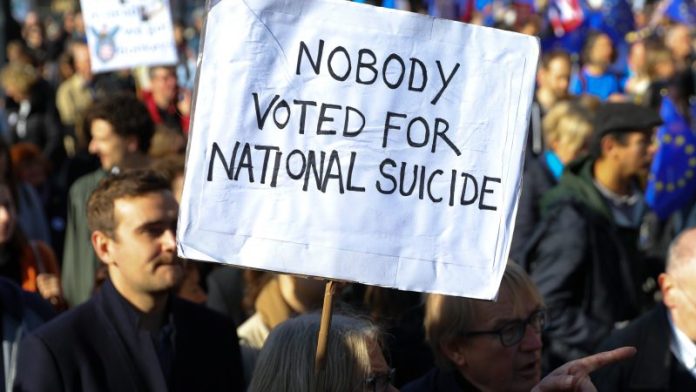By Yasmin Alibhai-Brown
Justice has become even more unjust. And the people, more powerless than ever before.
This March I chaired an event at the Oxford Literary Festival. It replicated the Question Time format. One of the panellists was the right-wing historian David Starkey. At one point, he fulminated about human rights and minority rights and declaimed with immense self-importance that the only duty of the state is to ensure, as Great Britain does, that citizens are treated equally before the law. Provocative? Yes, that’s the Starkey brand. Obtuse? Yes. Very clever people can be myopic and perverse.
British people are not equal before the law. Never have been, aren’t now. Throughout history, the indigent, working-class men, women and children, people of colour and dissenters have been discriminated against by the police, courts, judges and lawmakers. The rich and powerful, meanwhile, have been able (and enabled) to get away with crimes and misdemeanours or get special privileges when appearing before hearings and courts and even in prisons.
The bill for Boris Johnson’s legal fees has just risen to £245,000. He is being investigated by MPs over whether he misled parliament over lockdown parties in Downing Street. Our taxes are paying his costs. (Johnson has apparently just paid over £3.8m cash for a mansion.) It’s all right for some. The National Audit Office is looking into this arrangement and will let us know in due course.
They expect voters to forget and move on.
Let’s not, let’s never forget. Nadhim Zahawi pleaded “carelessness” and belatedly paid around £5m tax on £27m-worth of shares. That, according to the economics professor Arun Advani, is less than the average tax rate for someone working full-time on minimum wage. How is that OK? Next let’s remember Matt Hancock – now building up a nice fortune – and his generous PPE contracts handouts to pals and contacts. Has anyone been held to account?
Now let’s turn to Baroness Michelle Mone, who simply vanished from public view after newspapers alleged last November that she and her husband secretly received tens of millions of pounds from PPE Medpro, a company that she had arranged to get more than £200m of government Covid contracts. She denies any wrongdoing. The National Crime Agency was investigating. But again, a heavy silence has befallen the scandal.
Last year, the Mail on Sunday reported that a close aide to Prince Charles suggested to a Saudi billionaire that he could get a knighthood in exchange for “generous” cash donations to the Prince’s Foundation. Scotland Yard launched an investigation. Under the Honours (Prevention of Abuses) Act 1925 the sale of honours is illegal. In October the Met passed their files to the CPS. Nothing will come of that. The Royals and their inner circles are above the law.
A City lawyer or businessman found guilty of crimes will be treated more leniently than an unemployed man who cheats the benefit system. Or a young, black drug dealer. White-collar crime costs the nation billions, but because most of the criminals are educated, savvy, and able to hire expensive lawyers, they are not seen as a threat to law and order.
Meanwhile, the neediest in our society are systematically failed by the system. A report by the Bar Council last November concluded that cuts to legal aid funding are having a catastrophic impact. Millions of our citizens have no access to justice- that’s the working poor, those on Universal Credit and men and women worst hit by the cost of living crisis. Last week, a young widow with three young children stole some food from a supermarket. A friend of mine was there and she paid for the goods. But they still called the police and the widow is anxiously awaiting her fate. Such small crimes are often harshly punished. Our prisons testify to that.
Walk around as school ends and you will witness pupils from state schools being stopped and questioned by coppers. You won’t see public school boys and girls being harassed, even though drugs are a serious problem in those establishments.
The new Public Order Act, fast-tracked through parliament, is being employed against citizens who don’t know their place in this hierarchical nation. Campaigners from the anti-monarchist organisation Republic, environmentalists and others have been arrested and held, some pre-emptively. These are the first martyrs resisting the state which is moving inexorably to control of the masses.
Most judges are fiercely independent. But radical lawyers I know tell me some of the custodians of justice are restricting judicial reviews (JR), the only way governments can be compelled to act lawfully. JR success rates have fallen to the lowest ever. The Good Law Project, funded by small donors, uses the law, it says, “to make a better world”.
After some successful JRs, it seems to have displeased some old-fashioned judges. It’s not hard to figure out why.
Way back in 2003, Lord Goldsmith, then Labour’s attorney general said: “It is notable how often [white-collar] defendants receive non-custodial and suspended sentences despite committing serious economic crime.
“Social equality requires that we bear down on white-collar crime as effectively as on blue-collar crime, such as fraud in obtaining social security.
“Justice must be even-handed.”
Twenty years on, justice has become even more unjust. And the people, more powerless than ever before.



